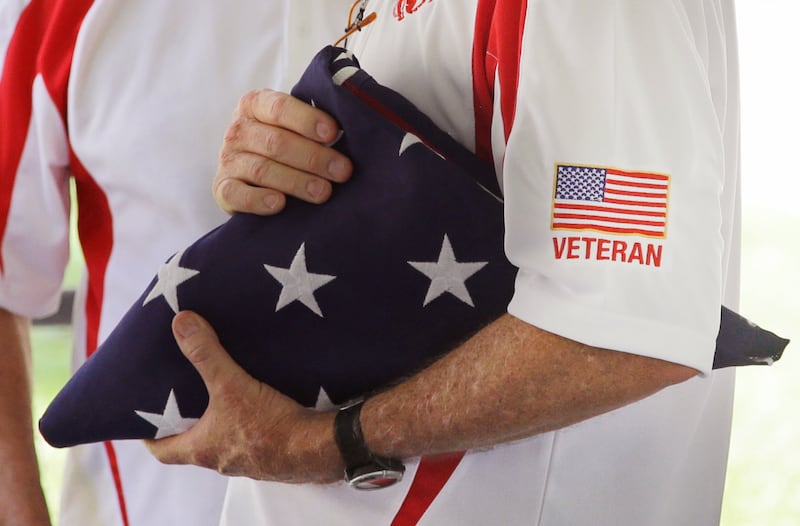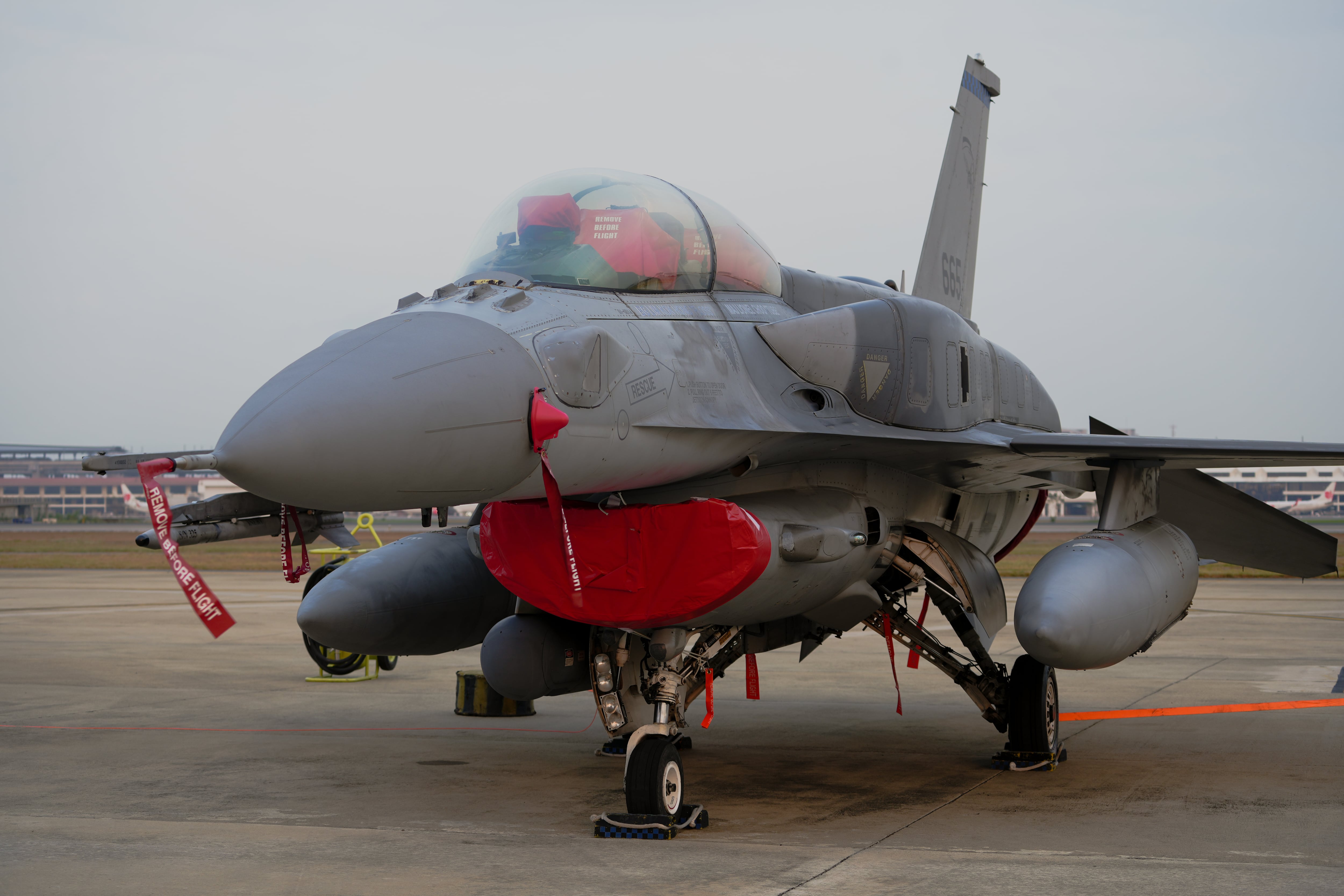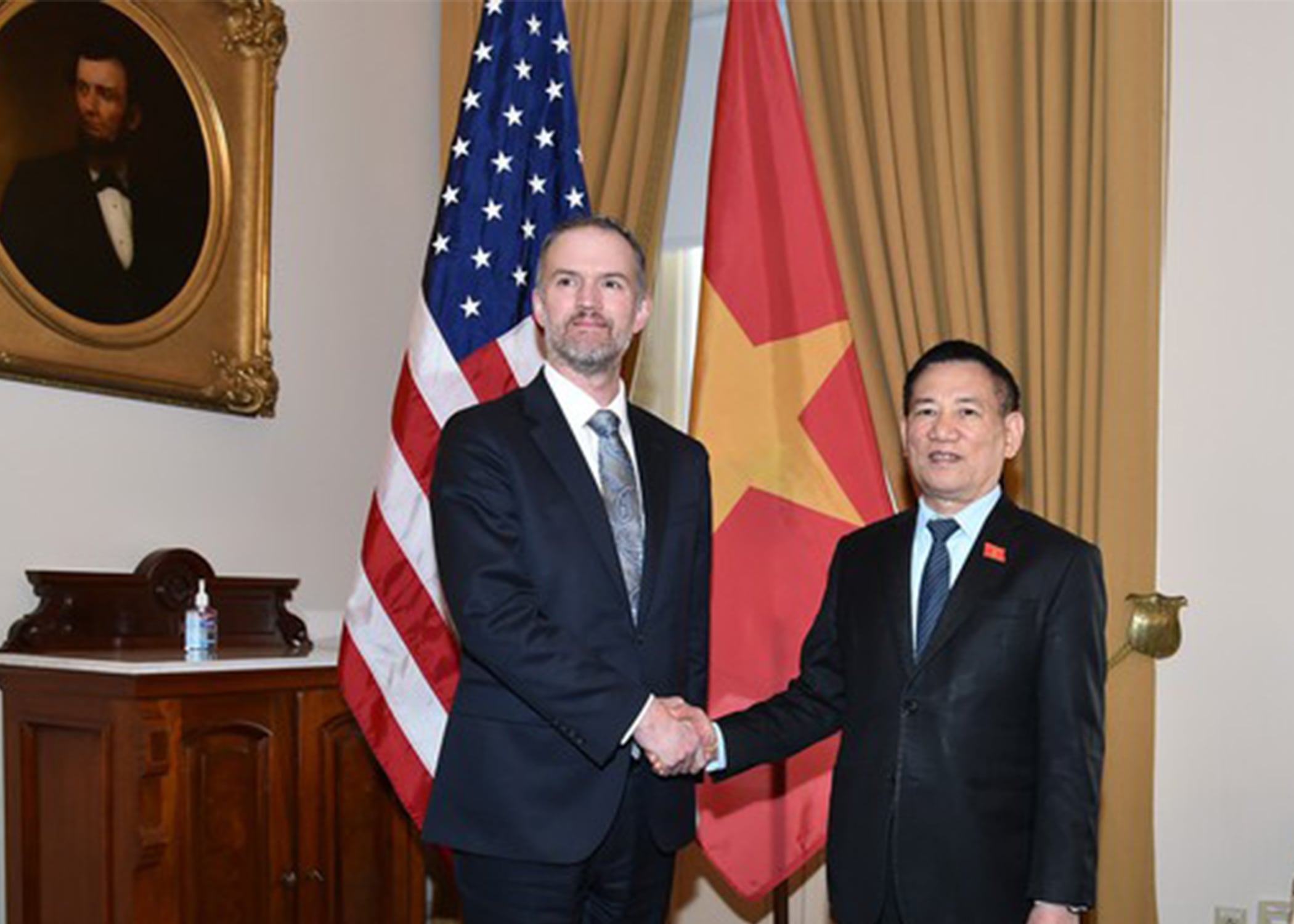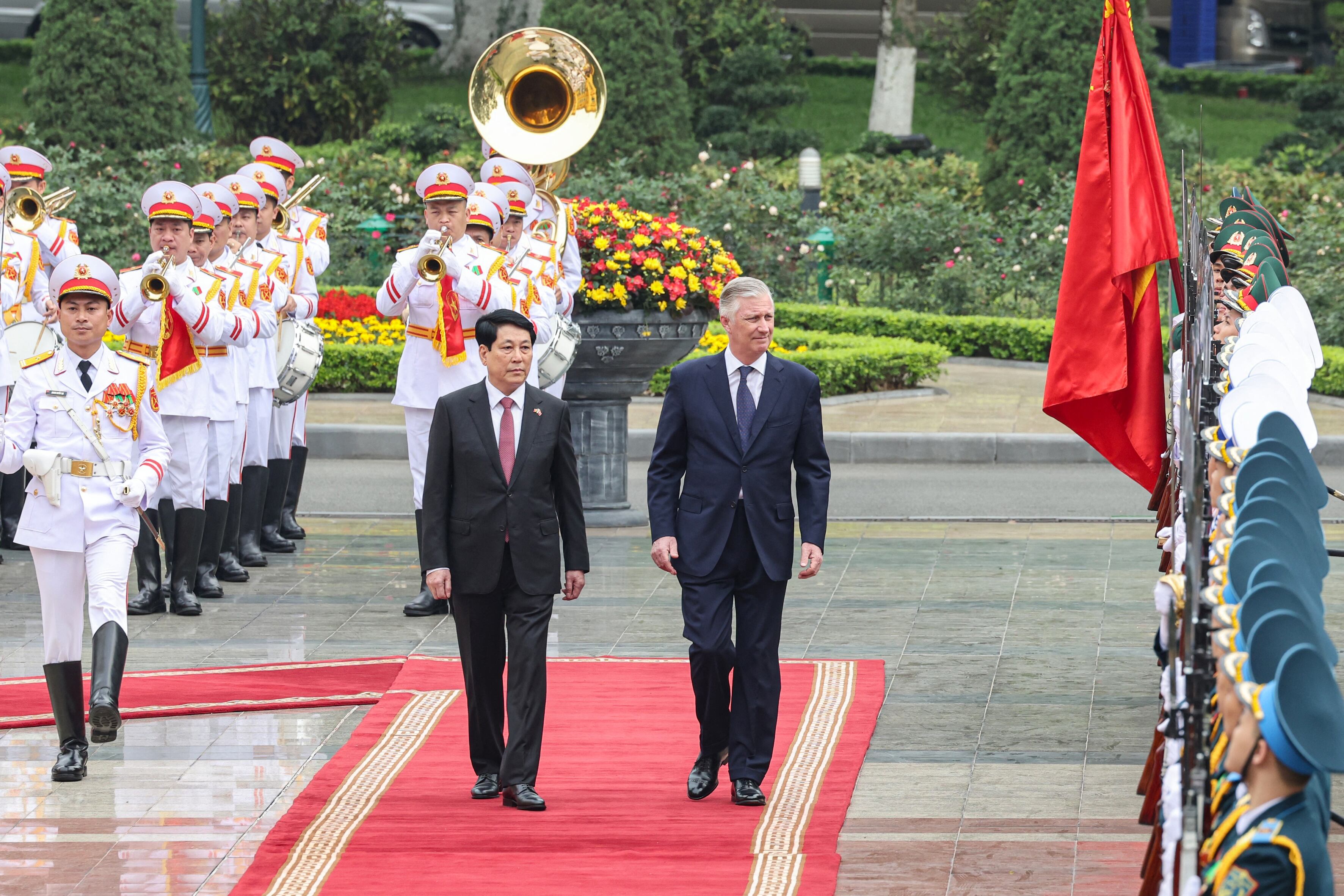Updated April 27, 2025, 07:35 a.m. ET
BANGKOK – The Vietnamese government says it is expecting a sizable U.S. presence when it marks the 50th anniversary of the end of the Vietnam War on April 30, despite media reports that the Trump administration told diplomats to stay away from events.
Ceremonies in Ho Chi Minh City will be attended by “delegations led by high-level leaders, political parties, international organizations, peace movements and anti-war movements, including those from the U.S.,” according to Vietnam’s foreign ministry spokesperson Pham Thu Hang.
The New York Times cited four anonymous U.S. officials as saying that the Trump administration “recently directed senior diplomats – including the U.S. ambassador to Vietnam Ambassador Marc Knapper – to stay away from activities tied to the anniversary on April 30.”
Veterans have also been told they will get no official help in organizing anniversary events, the newspaper said.

Noting that the ministry had not specifically verified the contents of the New York Times report, Hang told a regular press briefing Thursday the South’s surrender 50 years ago in the city then called Saigon holds a deep significance for both Vietnam and the U.S.
“Vietnam’s victory on April 30, 1975 is a victory of human conscience and righteousness, one that put an end to the losses and sufferings, for not only the people of Vietnam, but also to countless American families,” state media quoted her as saying.
Some U.S. officials told the New York Times that Trump may not want officials attending an event on the same day as his 100th day in office, particularly one marking a U.S. defeat.
The U.S. State Department responded to Radio Free Asia’s request for comment on the newspaper’s claims by saying, “The United States and Vietnam have a robust bilateral relationship and we are committed to deepening and broadening those ties. We look forward to working with the Vietnamese government and people to address shared challenges and opportunities.”
Carlyle Thayer, emeritus professor at Australia’s University of New South Wales, said it was in fact in the U.S. national interest at attend the ceremony “to bolster their comprehensive strategic partnership so Vietnam can play an independent role in regional security rather than be sucked into China’s orbit.”
He added that it had taken a long time to build political trust between U.S. and Vietnamese leaders and the Trump administration was undermining the relationship in three ways: by disrupting USAID programs in Vietnam to address demining, dioxin poison remediation and health care for victims of Agent Orange sprayed by U.S. forces during the Vietnam War; the unilateral imposition of tariffs on Vietnam’s exports to the United States including new high tariffs on solar panels; and showing a lack of respect for a major historical ceremony in Vietnam.
Hang pointed out that Vietnam-U.S. relations have been on the highest comprehensive strategic partnership level since 2023 and next week’s events are intended to celebrate a spirit of cooperation.
“The April 30 anniversary is an occasion to honor the values of benevolence, of peace, of reconciliation and in the spirit of putting the past aside and striving towards the future,” said the ministry spokesperson.
The report comes amid growing uncertainty in U.S.-Vietnam relations. Vietnam was hit with a steep 46% tariff on its exports to the U.S., posing a serious threat to its export-driven industrialization.
The move was met with disappointment in Hanoi, where Prime Minister Pham Minh Chinh said that it “did not reflect the strong bilateral relations between the two nations.”
Officials from two countries are reportedly in talks for a potential trade agreement, which is expected to lead to a lower tariff rate, though the extent of the adjustment remains unclear.
Edited by Taejun Kang, Stephen Wright and Mat Pennington.
Updated with State Department comments.



